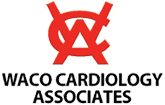Blood pressure is the pressure of the blood against the artery walls. The optimum blood pressure is below 120/80 mm Hg. High blood pressure, or hypertension, is a condition in which blood pressure levels exceed normal values. Blood pressure is necessary for the blood to circulate throughout the body. If the blood does not circulate, the vital organs cannot receive the oxygen and nutrients they need to function. When the heart beats, it pumps blood to the arteries and puts pressure on them. This pressure comes from two forces. The first force is created when the blood is pumped to the arteries by the circulatory system. The second is created when the arteries resist the flow of blood. When you are healthy, the arteries are muscular and elastic. They stretch when the heart pumps blood through them. How much they stretch depends on how much force the blood exerts. Hypertension means there is an increase of pressure on artery walls, which contributes to heart disease, stroke, and kidney failure. Normally, the heart beats 60-80 times per minute. The blood pressure increases with each beat and decreases when the heart relaxes between one beat and the next. The blood pressure can change from one minute to the next, but normally, in an adult person, it should remain below 120/80 mm Hg. Blood pressure that is always between 120-139/80-89 is considered pre-hypertension, and if it is always or mostly above 140/90 mm Hg, it is considered hypertension. Click here for an infographic on What is Blood Pressure? Systolic/Diastolic When blood pressure is taken, you are given two figures. These are: Systolic (the higher or top figure): represents the blood pressure when the heart beats. Diastolic (the lower or bottom number): represents that pressure when the heart rests. The systolic pressure is always stated first and the diastolic second. For example: in 120/80 (120 over 80), the systolic pressure is 120 and the diastolic is 80. High blood pressure increases the risk of heart attack, angina, stroke, heart failure, kidney failure, and peripheral artery disease. High blood pressure also increases the risk of developing atherosclerosis. The risk of heart failure increases due to the greater effort of the heart that high blood pressure requires. Treatment of high blood pressure: Your doctor may choose one or more of the following to help keep your blood pressure under control. Lifestyle modification: Natural methods to keep your blood pressure low include aerobic exercise and healthy eating with low salt intake and a diet rich in fruit, vegetables, whole grains and dairy, such as yogurt. Diet High salt-content diets accelerate hypertension as we grow older. Consuming as little salt as possible can prove beneficial, especially for people sensitive to salt, and the elderly. Even eliminating table salt and cooking salt can be beneficial. A diet low in saturated fat and with plenty of whole grains, fruits and vegetables is recommended. Some suggested foods are: nuts, seeds, carrots, spinach, celery, mushrooms, beans, potatoes, avocados, broccoli, and foods that contain proteins (like fish, poultry or soy products). Losing weight immediately reduces blood pressure and reduces the size of the heart. Losing weight can allow patients with mild hypertension to reduce their blood pressure and perhaps reduce or stop taking medication. An adequate amount of minerals such as potassium, magnesium and calcium can help reduce blood pressure. People should obtain this mineral through potassium-rich foods, such as potatoes, avocados, bananas, fat-free dairy products, red beads, oranges, prunes and melons. Calcium regulates the tone of the smooth muscle that covers the blood vessels. Hypertension causes the body to lose calcium. Vitamin C offers specific benefits for hypertension, since it prevents dangerous effects on nitric acid, the substance that keeps arteries flexible. Smoking is a significant risk factor. Alcohol consumption can also increase the risk, unless it is consumed in moderation. The consumption of a few cups of coffee a day in healthy individuals is not very likely to cause damage. Hypertensive people should definitely avoid excessive caffeine. Exercising regularly can help the arteries stay elastic. This allows for better blood circulation and helps keep blood pressure low. Moderate-intensity exercise is recommended to lower blood pressure more effectively than high- intensity exercise. Medications: The medications designed to lower blood pressure can also be used to achieve your blood pressure objective. Your doctor may choose an antihypertensive medication that acts centrally on the heart to lower blood pressure. Otherwise, your doctor may choose an antihypertensive that acts peripherally dilating the arteries to reduce blood pressure.
Caring for the hearts of Central Texas Since 1971
(254) 399-5400



